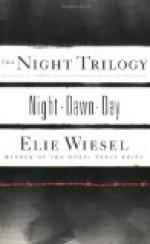From babe to boy, from boy to youth he
grew,
But more in grace and knowledge than in
years.
At play his joyous laugh rang loud and
clear,
His foot was fleetest in all boyish games,
And strong his arm, and steady nerve and
eye,
To whirl the quoit and send the arrow
home;
Yet seeming oft to strive, he’d
check his speed
And miss his mark to let a comrade win.
In fullness of young life he climbed the
cliffs
Where human foot had never trod before.
He led the chase, but when soft-eyed gazelles
Or bounding deer, or any harmless thing,
Came in the range of his unerring dart,
He let them pass; for why, thought he,
should men
In wantonness make war on innocence?
One day the Prince Siddartha saw the grooms
Gathered about a stallion, snowy white,
Descended from that great Nisaean stock
His fathers brought from Iran’s
distant plain,
Named Kantaka. Some held him fast
with chains
Till one could mount. He, like a
lion snared,
Frantic with rage and fear, did fiercely
bound.
They cut his tender mouth with bloody
bit,
Beating his foaming sides until the Prince,
Sterner than was his wont, bade them desist,
While he spoke soothingly, patted his
head
And stroked his neck, and dropped those
galling chains,
When Kantaka’s fierce flaming eyes
grew mild,
He quiet stood, by gentleness subdued—
Such mighty power hath gentleness and
love—
And from that day no horse so strong and
fleet,
So kind and true, easy to check and guide,
As Kantaka, Siddartha’s noble steed.
To playmates he was gentle as a girl;
Yet should the strong presume upon their
strength
To overbear or wrong those weaker than
themselves,
His sturdy arm and steady eye checked
them,
And he would gently say, “Brother,
not so;
Our strength was given to aid and not
oppress.”
For in an ancient book he found a truth—
A book no longer read, a truth forgot,
Entombed in iron castes, and buried deep
In speculations and in subtle creeds—
That men, high, low, rich, poor, are brothers
all,[10]
Which, pondered much in his heart’s
fruitful soil,
Had taken root as a great living truth
That to a mighty doctrine soon would grow,
A mighty tree to heal the nations with
its leaves—
Like some small grain of wheat, appearing
dead,
In mummy-case three thousand years ago[11]
Securely wrapped and sunk in Egypt’s
tombs,
Themselves buried beneath the desert sands,
Which now brought forth, and planted in
fresh soil,
And watered by the dews and rains of heaven,
Shoots up and yields a hundred-fold of
grain,
Until in golden harvests now it waves
On myriad acres, many thousand miles
From where the single ancient seed had
grown.




